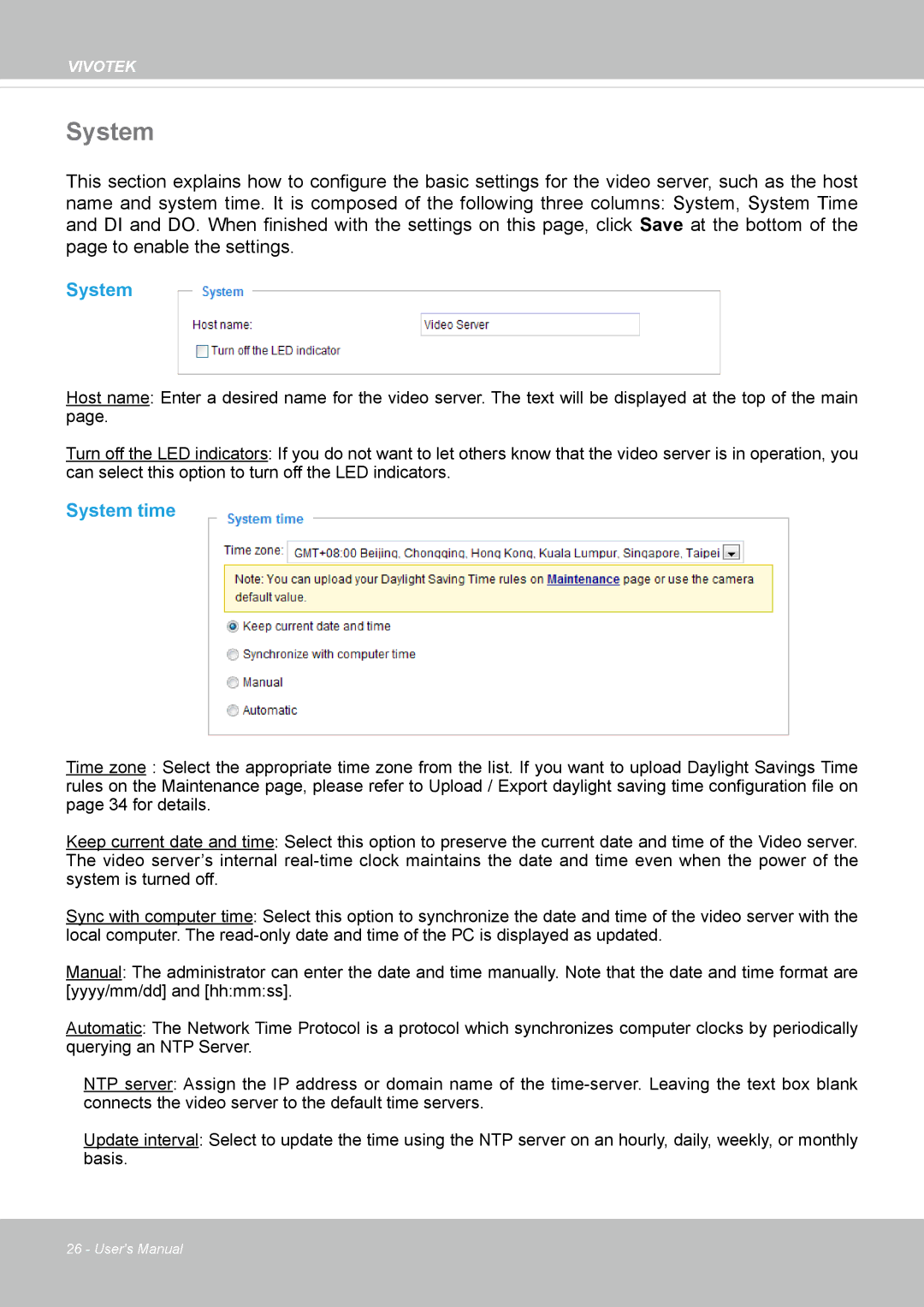
VIVOTEK
System
This section explains how to configure the basic settings for the video server, such as the host name and system time. It is composed of the following three columns: System, System Time and DI and DO. When finished with the settings on this page, click Save at the bottom of the page to enable the settings.
System
Host name: Enter a desired name for the video server. The text will be displayed at the top of the main page.
Turn off the LED indicators: If you do not want to let others know that the video server is in operation, you can select this option to turn off the LED indicators.
System time
Time zone : Select the appropriate time zone from the list. If you want to upload Daylight Savings Time rules on the Maintenance page, please refer to Upload / Export daylight saving time configuration file on page 34 for details.
Keep current date and time: Select this option to preserve the current date and time of the Video server. The video server’s internal
Sync with computer time: Select this option to synchronize the date and time of the video server with the local computer. The
Manual: The administrator can enter the date and time manually. Note that the date and time format are [yyyy/mm/dd] and [hh:mm:ss].
Automatic: The Network Time Protocol is a protocol which synchronizes computer clocks by periodically querying an NTP Server.
NTP server: Assign the IP address or domain name of the
Update interval: Select to update the time using the NTP server on an hourly, daily, weekly, or monthly basis.
26 - User's Manual
